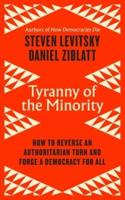Publisher's Synopsis
A comparative study of workers, organized labour and society in 19th- and 20th-century Britain and America. It explains the formative influences on, and main characteristics of, the development of workers' movements in the two countries; it situates the labour movement's institutions in their wider social context; and it traces the interactions between economic and other "hard facts of life" and the conscious attempts of workers to shape their own destinies.;Neville Kirk demonstrates that American "exceptionalism" has been exaggerated - he ascribes the significant, though not overwhelming, differences in the two nations' experiences to the comparatively inflexible British political system, to Britain's greater social homogeneity and to the less successful attempts of British employers to destroy workers' organizations.








